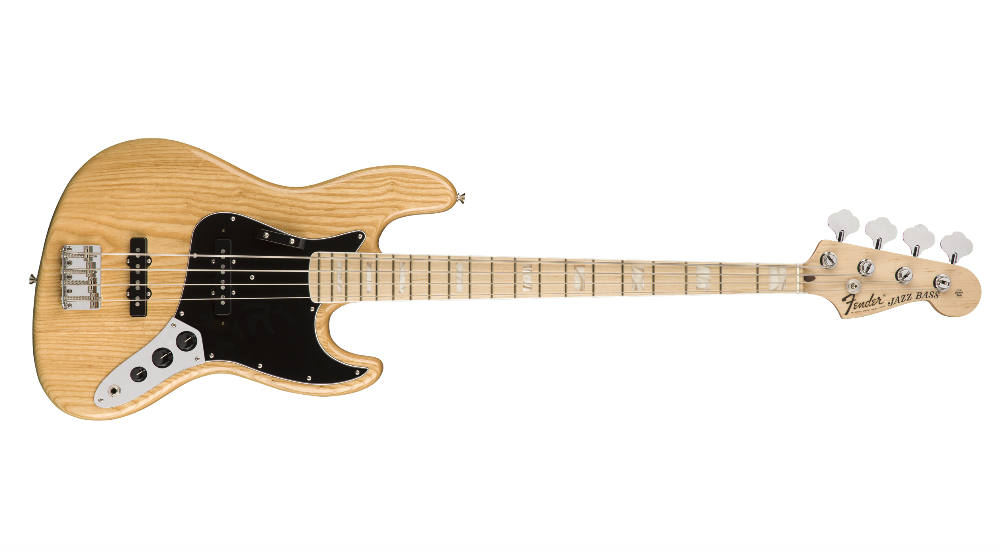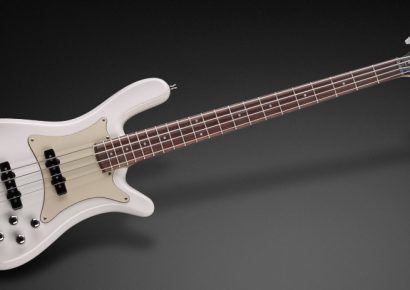Elsewhere in this issue I talk about the exquisite experience I had uncovering a ‘50s Telecaster from the same series. Being allowed to disrobe this Jazz Bass was no less scintillating insomuch as there is just something extra about this particular era in Fender’s history for me. First and foremost, nothing screams distinction quite like a natural ash body, lathered in lacquer and gussied up with a stark, black scratch plate. Glance gradually upward toward the head of this piece and that distinction becomes black tie ball worthy. The deep U maple neck is dripping with white binding and block inlays between immaculately finished vintage tall frets. In an effort to make this iteration all the more buttery under the fingers, the fretboard is a moderately flatter 7.25” radius. Everything else is era specific, from the saddles to the machine heads. Even the sultry curve of the hip bevel, rounded edging and finger rest above the neck pickup is plucked from history and as sassy as you’d expect.
All that is merely propeller-head fodder though. With a spec sheet full of universally sought after inclusions, it should be easy enough to set and forget the way it sounds, right? Not so much. As with all of the heavy hitters from history, imitation is the sincerest form of flattery, but not necessarily the fastest way to satisfaction, and Fender have clearly gone to great lengths to preserve the juicy, thunderous harmonic overtones that made their original ‘70s models so intrinsic to the rampant sonic exploration that the players who chose them were responsible for. This is the instrument that inspired some of the most notable players of all time, from Bootsy to Jaco, to permanently expand the horizons of what it is to play the bass, and as such it is imperative that Fender afford this tribute the same intuition and character. In short, it sounds as good as it looks, if not better. There is so much clarity, resonance and air in the note that it almost feels like it’s breathing every phrase like a whale breathes its song.
When Fender looks back at its lineage it does so with humility and gratitude. When they tell us that they are going to produce an instrument worthy of its heritage, they do just that and do so without the cockiness and bravado that impinges many of their fellow Hall of Famers. This particular ‘70s Jazz Bass, and indeed the entire American Original series, is testament to the steady eye that Fender has both in the future and in the past.

